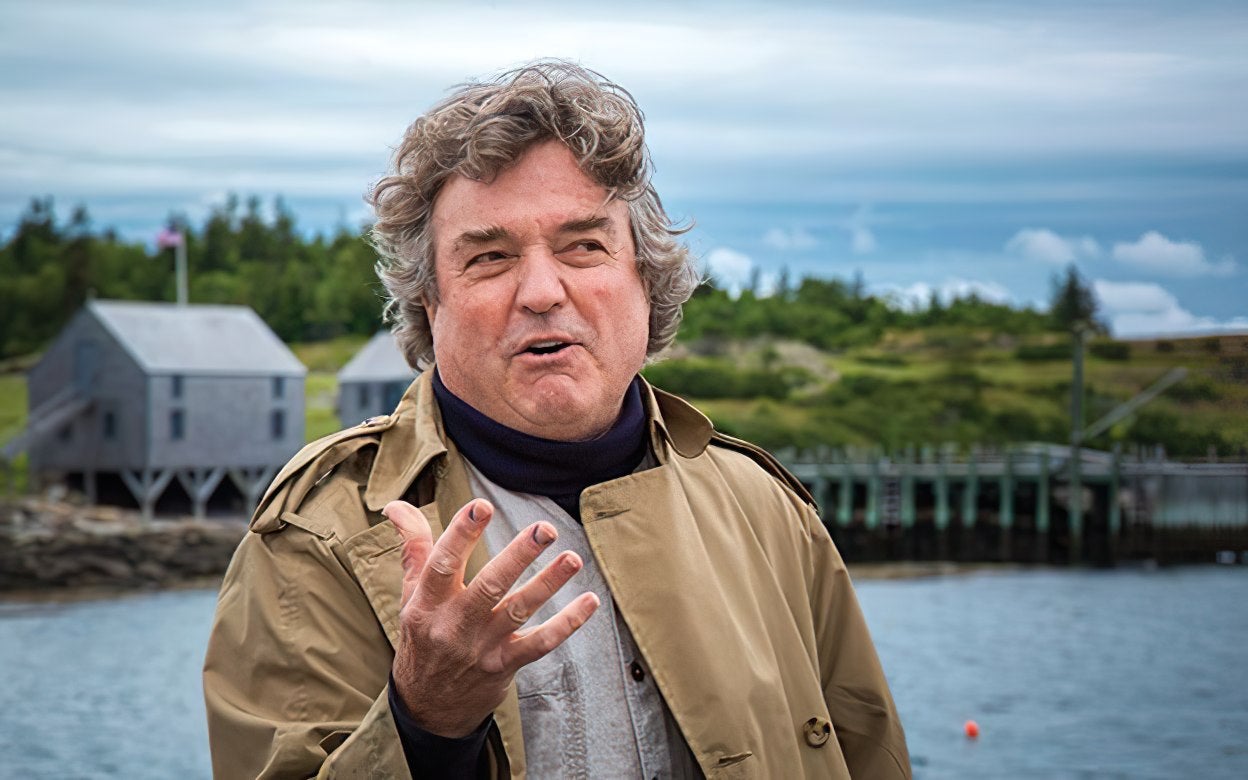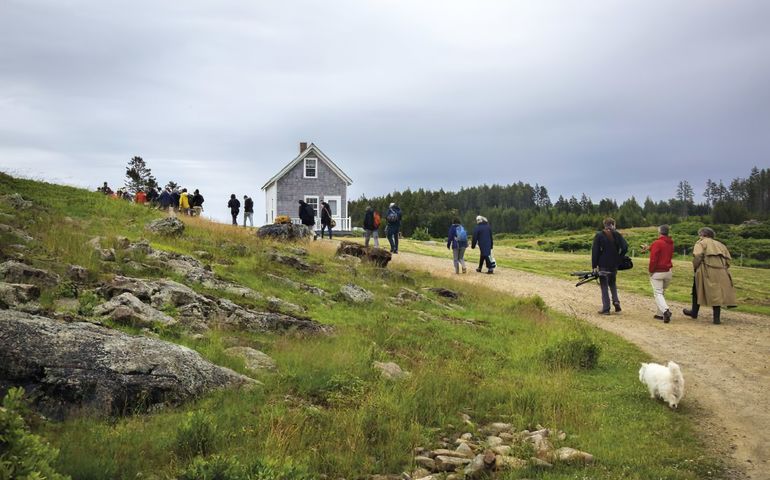Colby College has acquired two islands off the coast of Maine where renowned American artist Andrew Wyeth painted some of his greatest works.
Colby now owns Allen Island and Benner Island, 5 miles south of Port Clyde, from the Up East Foundation and the Wyeth Foundation for American Art.
The Waterville college paid $2 million for the properties, with the rest of their $10 million to $12 million market value contributed as a gift in kind by the foundations, according to the New York Times.
The school intends to preserve the islands and use them as centers for learning, research and creative inspiration, in fields ranging from science to sculpture.
Allen and Benner had been owned by the late Betsy Wyeth, who purchased 450-acre Allen Island in 1979 and 50-acre Benner Island in 1990. There, she established a model for conservation and the preservation of Maine’s working waterfront. Betsy Wyeth, who was Andrew Wyeth’s wife, died in April 2020.
Over the last five years, Colby has partnered with the Up East Foundation to develop projects and programs on Allen that complement Colby’s academic program and have involved important discoveries, especially in the sciences.
Colby will now be able to expand its work there in a wide range of disciplines. The interdisciplinary focus will continue to involve the humanities and science, from sculpture and cinema to bird research and long-term climate monitoring, the school said in a news release.
“These islands, which have been stewarded with deep respect for the land and the lives of those who have inhabited them over time, will now become laboratories for important research and places of quiet reflection and artistic creation,” said Colby President David A. Greene.
“Colby College will carry Betsy Wyeth’s vision forward through our commitment to the community, to the islands being centers of discovery, and to conserving a natural environment that is truly inspirational. We are humbled by the opportunity to create the next chapter in the incredible story of Allen and Benner islands.”
While the sciences have and will continue to play an important role on the islands, Allen and Benner will also contribute to and be available for a wide range of programs and activities, including Colby’s outdoor orientation trips to leadership training and retreats.
“Allen and Benner islands are such an integral part of my family, our history, and our art,” said Jamie Wyeth.

“My grandfather N.C. Wyeth produced many important works on and around this island archipelago. Of course, my father, Andrew, not only painted on the islands, but he lived on them every summer. Finally, my mother, Betsy, deeply loved and left an indelible mark on these unique islands through her great vision to protect and conserve them and the surrounding community. I am convinced that Colby College is the perfect steward to carry on and maintain my family’s legacy on the islands into the future,” Wyeth said.
Allen Island also has an important cultural legacy that includes being used by the Abenaki, the Native American community that resided in the region. It was the initial stop that British explorer George Weymouth made in 1605 as part of his expedition to the area now known as Maine, and it was also the site of the first Anglican service in North America.
Allen Island grew into a thriving fishing community that supported a school, but like many year-round islands off the Maine coast, the population declined until only a handful of lobstermen and their families resided there.
Betsy Wyeth purchased the islands to create surroundings that supported and inspired her husband’s work, and she helped resurrect them over a 40-year period. This involved developing a landscape and forest management plan; restoring and designing a series of buildings; building a wharf to support the livelihoods of local lobstermen.
Her efforts to improve the islands resulted in the creation of subjects for some of Andrew Wyeth’s final works and inspired major paintings, including “Jupiter,” “Airborne” and “Pentecost,” among others.
“Like the Wyeth family, Colby has a deep and demonstrated commitment to excellence in American art as well as to the welfare of Maine — its people, culture, and environment — which is why the college is the ideal partner,” said J. Robinson West, president of the Wyeth Foundation for American Art. “Colby is Maine, and we couldn’t have made a better choice for stewarding these islands into the future.”
Allen and Benner islands offer year-round, easy access and undisturbed environments that are ideal for conducting research. This has created important opportunities for Colby to measure and assess a series of major issues and crises, including the impact of climate change on the Gulf of Maine, one of the fastest-warming bodies of water in the world.
Colby said its stewardship of the islands will build on Up East’s commitment to ecological research, preservation and education in midcoast Maine. A key part of this will involve continuing to support the lobstering community that uses Allen Island and that Betsy Wyeth helped re-establish.
“Colby is, at its core, a Maine institution with a fundamental commitment to our state and its people,” said Greene. “The stewardship of these treasured islands is a responsibility we embrace. We are grateful to the Wyeth family and to all those who tended to these remarkable properties with care and foresight.”
